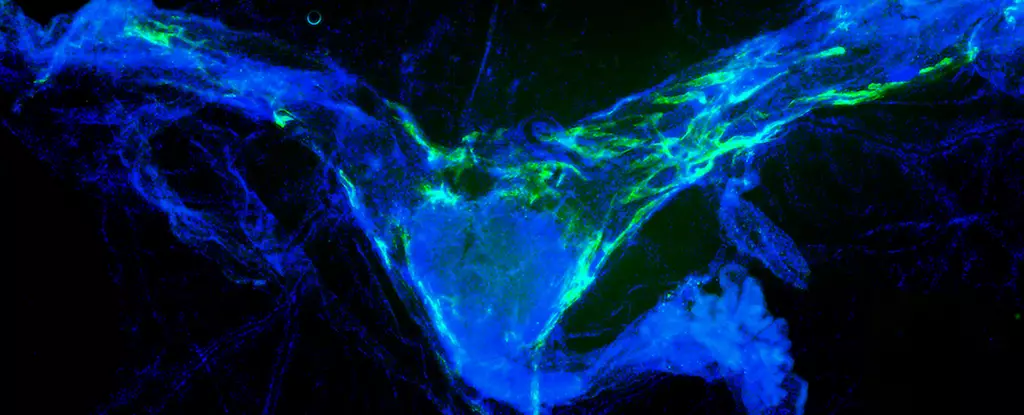As we transition into our later years, the intricate cleaning processes within our brains become less effective, adversely impacting our cognitive capabilities. A recent breakthrough by a dedicated team at Washington University in St. Louis has illuminated the role of meningeal lymphatics in brain health and memory function. These specialized vessels serve as the brain’s primary waste disposal system, part of the broader lymphatic mechanism that is too often overlooked. As our natural cognitive cleaning dwindles, we may be unwittingly compounding the risk of neurodegenerative diseases like Alzheimer’s.
What this research highlights is not just a biological failure, but a systemic healthcare oversight. It’s shocking that more attention hasn’t been directed to these meningeal lymphatics until recently, especially when considering the global Alzheimer’s epidemic. The brain, at its core, is a powerhouse of emotions and thoughts; yet, it becomes compromised if we neglect its ability to flush out toxins. This revelation beckons for a renewed focus on the physiological underpinnings of cognitive health in senior citizens, which have been sidelined in favor of more mainstream medical narratives that typically lean on pharmaceutical solutions.
Breakthroughs in Therapeutic Applications
The research leverages a targeted protein treatment that appears to stimulate growth and function of the meningeal lymphatics in older mice. Not only did these treatments enhance memory function, but they also demonstrated a decrease in interleukin 6 levels—essentially calming down overwhelmed immune responses triggered by stressed microglia. Such findings can alter our approach to treating not only age-related cognitive decline but could redefine the landscapes around mental health therapies at large.
Isn’t it astounding that we can pave new pathways to cognitive restoration without penetrating the formidable blood-brain barrier? This thought opens an imaginative avenue for future therapies, suggesting that we don’t need to resort solely to invasive measures when tackling neurodegenerative conditions. The prospect of developing new, less invasive therapies by focusing on our body’s innate waste management systems should ignite a fire in the belly of researchers worldwide.
A Call for a Paradigm Shift
The insights emerging from this study call for a vigorous reevaluation of how we perceive brain health. Conventional wisdom often relegates brain deterioration to the mere passage of time, but what if the future of cognitive health lies in proactive waste disposal rather than reactionary treatments? The correlation between accumulative toxicity and cognitive function cannot be overstated. We must cultivate a culture that acknowledges and prioritizes the necessity of optimal brain hygiene through biologically-informed interventions.
Moreover, there exists a compelling narrative of hope within these findings—the possibility of preserving our cognitive functions through physiological adaptation rather than pharmacological dependency. It provokes a significant ethical discourse about how we fund and prioritize mental health research and treatment methodologies within the healthcare system.
The Bigger Picture: Our Collective Responsibility
As we grapple with the increasing incidences of neurodegenerative diseases, it becomes crucial for society to engage in critical discussions and lobbying for focused funding on this type of research. Studies like this one remind us that we are collectively responsible for pushing the frontiers of knowledge that will benefit not just an aging population, but society as a whole. Every breakthrough that enhances our understanding of brain function and its waste management systems can lead to broader applications in mental health and cognitive healthcare, and reduce the economic burden of dementia on families and healthcare systems.
Furthermore, as we contemplate interleukin 6’s role as a distress signal, we should also reflect on how our modern lifestyles and environmental factors may be exacerbating these stress signals in our brains. It puts a spotlight on the urgent need for holistic approaches to health that account for lifestyle, environment, and biological mechanisms—and the importance of instigating societal shifts around mental health awareness and preventive care practices.
Through such research breakthroughs, we can unlock the potential for novel therapeutic interventions that not only preserve cognitive functions but enhance overall well-being as we age, prompting a profound shift in our understanding of the aging process itself.


Leave a Reply